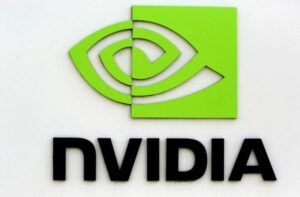(Reuters) -Intel’s rivals Taiwan Semiconductor Manufacturing Co and Broadcom are each eyeing potential deals that would break the U.S. chipmaking icon in two, the Wall Street Journal reported on Saturday, citing people familiar with the matter.
Broadcom has been closely examining Intel’s chip design and marketing business, the Journal reported, adding that the company had discussed a potential bid with its advisers but would likely only proceed if it found a partner for Intel’s manufacturing business.
TSMC, the world’s biggest contract chipmaker, has separately studied controlling some or all of Intel’s chip plants, potentially as part of an investor consortium or other structure, the report said.
Broadcom and TSMC are not working together, and all of the talks so far are preliminary and largely informal, the Journal added.
Intel’s interim executive chairman, Frank Yeary, has been leading the discussions with possible suitors and Trump administration officials, who are concerned about the fate of a company seen as critical to national security, the report said.
Yeary has been telling individuals close to him that he is most focused on maximizing value for Intel shareholders, the report added.
Intel, Broadcom, TSMC and the White House did not immediately respond to Reuters’ requests for comment.
A White House official told Reuters on Friday that President Donald Trump’s administration might not support Intel’s U.S. chip factories being operated by a foreign entity after Bloomberg reported that TSMC was considering taking a controlling stake in Intel’s factories at Trump’s request.
The White House official said the Trump administration supported foreign companies investing and building in the U.S. but was “unlikely” to support a foreign firm operating Intel’s factories.
Bloomberg reported that Trump’s team raised the idea of a deal between the two firms in recent meetings with officials from TSMC who were receptive, citing a person familiar with the matter.
Intel was among the largest beneficiaries of the U.S. push to onshore critical chip manufacturing led by former President Joe Biden’s administration.
The U.S. Commerce Department said in November it was finalizing a $7.86 billion government subsidy for Intel.
The company is one of a few chipmakers that design and manufacture semiconductors.
TSMC boasts a market valuation about eight times larger than that of Intel. The Taiwanese company’s customers include AI chip leader Nvidia and AMD, which is Intel’s fierce rival in PC and server markets.
Former Intel CEO Pat Gelsinger, who was ousted last year, set sky-high expectations for Intel’s manufacturing and AI capabilities among major clients but fell short, leading to the chipmaker losing or canceling contracts, Reuters reported previously.
Intel’s shares lost about 60% of their value last year as its capital-intensive bid to bolster manufacturing – a strategy championed by Gelsinger – strained the company’s cash flow and ultimately led to it cutting about 15% of its workforce.
(Reporting by Nilutpal Timsina in Bengaluru; Editing by Jamie Freed and Kate Mayberry)






